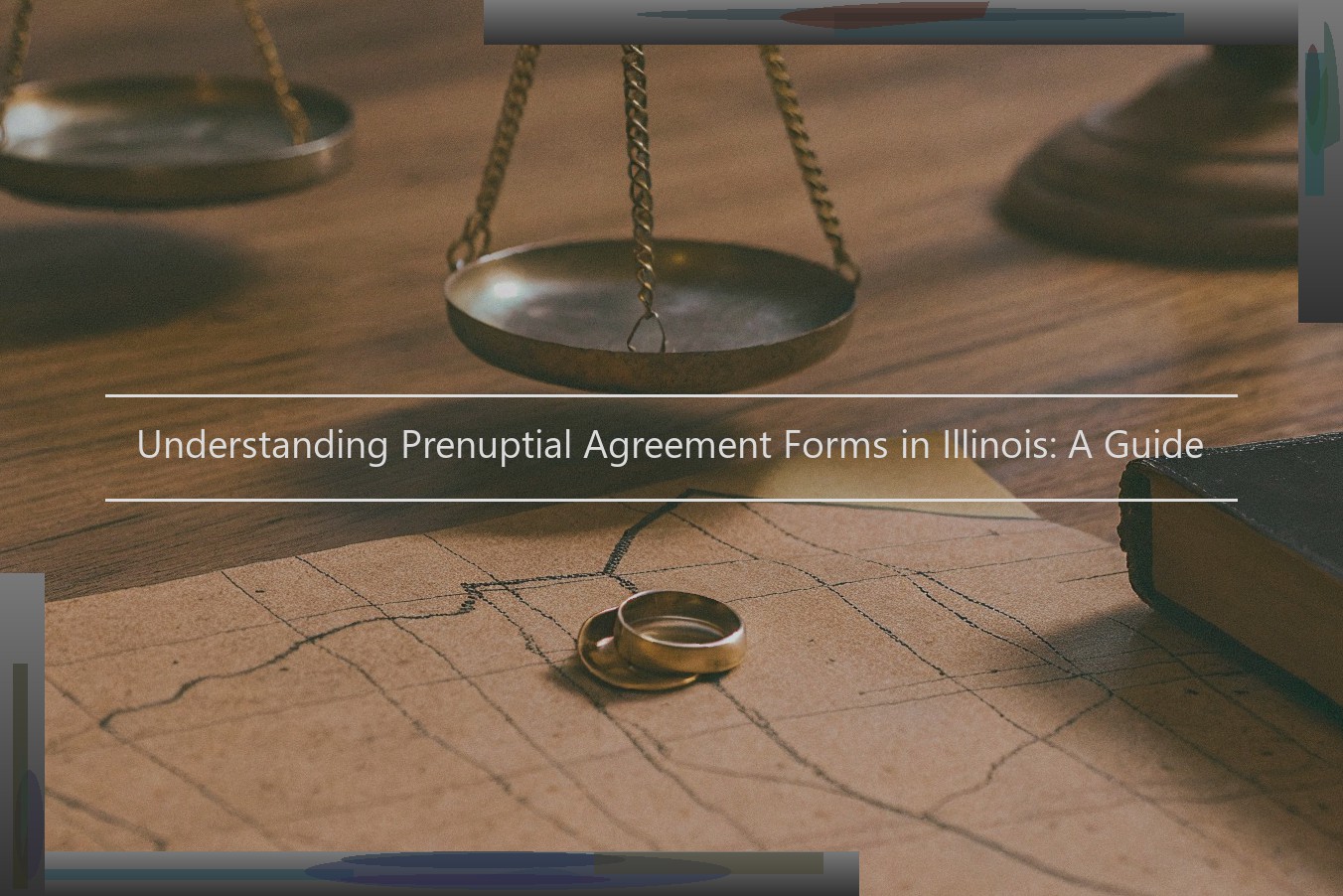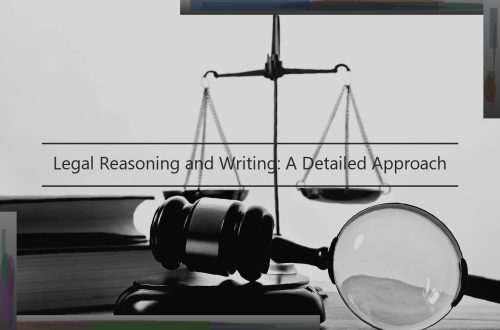Understanding Prenuptial Agreement Forms in Illinois: A Guide
An overview of Illinois prenuptial agreements
A prenuptial agreement, also called a premarital agreement, is a contract made between two people who are about to marry. It outlines what will happen to a couple’s assets and other financial considerations if the marriage goes awry. Generally speaking, it is designed to protect the individual’s property and assets when entering into a marriage.
These types of agreements help to clarify complex financial situations, such as inheritance distributions, debt allocation and the division of salaries. Often, a couple will have asset formation prior to their nuptials, including personal businesses, real estate or inheritances. A prenuptial agreement may be the best way to protect said assets.
It is not uncommon for one or both parties to possess substantially greater wealth. Sometimes, a prenuptial agreement is intended to protect the less wealthy spouse because of them agreeing to accept less than what the state of Illinois may require during a divorce . By doing this, the more affluent spouse can shield themselves to an extent by stating how the house, expensive jewelry or automobiles should be divided.
While many people deem a prenuptial agreement necessary because of their particular financial situation, it is important for both parties to understand the advantages and disadvantages of such an agreement.
To better understand the advantages and disadvantages, it is essential to understand the laws governing prenuptial agreements. Illinois is governed by the Illinois Uniform Premarital Agreement Act and it covers legal requirements and other generalities related to prenuptial agreements.
When speaking of the legality of prenuptial agreements in Illinois, it is important to understand that these contracts must be prepared and signed in accordance with the requirements set forth in the Act.

Illinois Prenuptial Agreement Legalities
When it comes to the validity and enforceability of a prenup, three issues are of particular concern: (1) when the agreement was entered into, (2) whether it was made voluntarily and (3) whether it was unconscionable. The latter two issues, however, are "also at least implicitly addressed by the statutory requirements that a prenuptial agreement be signed by both parties and is in writing." In re Estate of Hoptowit, 73 F.3d 1170, 1175 (9th Cir. 1996)(applying Arizona law).
The statutory framework for Illinois prenuptial agreements is 750 ILCS 10/2, which provides:
§ 2. Parties to a marriage may contract regarding any property under this Act except as to that part of the earnings or increase in value tradable or business goodwill acquired during the marriage.
Further, § 4 of the Act provides:
§ 4. (A) parties to a marriage contract regarding any and all property owned by either or both at the time of the marriage or acquired at any time afterwards.
(B) Nor can the marriage contract provide deficiencies to the other’s right for maintenance.
(C) The right of any child to support may not be adversely affected by a "marriage contract."
Beyond the statutory requirements, Illinois common law also imposes the following formal elements: (1) full disclosure of the property involved, unless waived "in writing," (2) given opportunity to consult with independent counsel, and (3) an absence of other circumstances which would make the agreement unreasonably favorable to one party’s position. In re Marriage of Burkey, 746 N.E.2d 1180, 1188 (Ill. App. Ct. 1st Dist. 2001); In re Marriage of Bingham, 491 N.E.2d 812, 816 (Ill. App. Ct. 1986).
Benefits of having a Prenuptial Agreement
Regardless of the reasons, prenuptial agreements can help in planning for the future. There are several benefits in creating one before marriage, such as the protection of assets, clarifying financial responsibilities, and establishing terms in case of a divorce. The party with more wealth is usually the one who desires a prenuptial agreement to protect their assets. However, there are other benefits that create an advantage from having such an agreement. They include:
Discussing finances and assets early in the relationship helps to build the foundation for one of the most important aspects of a marriage, which is money. A prenuptial agreement helps to open the lines of clear communication.
The future is unknown, and although everyone hopes for a long and happy marriage, there are never any guarantees. A prenuptial agreement helps to protect assets. If a party has extensive assets, it can be quite complicated if they didn’t have a prenuptial agreement, particularly if there’s a complex business involved. Once the marriage is over and there’s no prenuptial agreement and no clear understanding in writing of what each party considers a marital asset and a non-marital asset, it complicates matters even worse.
For the party without the wealth or no assets when they marry, this is a chance for them to protect themselves. If the marriage is short lived, without a prenuptial agreement, their financial future could be affected. This agreement allows them to ensure that they will not be adversely impacted, including protecting any business or career opportunities they may enjoy in the course of the marriage.
How to create a prenuptial agreement in Illinois
The drafting of a prenuptial agreement is, in the minds of the vast majority of my clients, a bit like going to the dentist – no one really wants to do it, but there’s really no choice. As with most other contracts, a prenuptial agreement can be drafted by the parties themselves. This is rare. The drafting of the agreement is often undertaken by each respective attorney for the parties. We recommend that there be some level of negotiation between the parties as well. However, an agreement drafted solely by the parties is disfavored as there is no guarantee that each party had "meaningful access" to independent counsel or had negotiations that were more than pro forma in nature. When drafting an agreement, there should be a full disclosure of income and assets. The income and assets of bridging your quiver and my own must be disclosed. Don’t forget that the law requires a complete and accurate listing of all debt too.
The first draft of an agreement prepared by one of the attorneys may likely be too long and filled with too many words, which, I believe, causes many people to lose interest. However, each party should consider that the more description that each party individually provides about himself or herself is not only helpful at the time of drafting the agreement but also at the time of enforcement in the event of divorce and the inclusion of prenuptial and premarital employment. For example, if you are a physician with tangible assets (i.e., buildings, property, stock or cash) you may wish to specifically identify those things and call them separate. This is because the Illinois law provides that your spouse will likely be entitled to receive part of those assets regardless of what your prenuptial agreement states. In the event we contend that there has been an impairment of the marital estate or the asset should be treated within the community as opposed to entirely separate I believe it is important that we have a specific identification of the asset. Separate property is separate property, unless and until it is applied or incorporated into the marital estate; therefore how the parties treat the property is very important. An additional clause to consider is the elimination of maintenance or spousal support in the event of a divorce. It is important that there be a ban on maintenance or spousal support. Although there are some limitations to that in Illinois, the fundamental premise is that there should be limited interference by the court in the parties’ right to create a perfunctory agreement.
What goes into a prenuptial agreement form?
When completing a prenuptial agreement form, every attempt should be made to ensure that some basic elements are included. Specific provisions to address the following concerns should be included, according to Illinois law:
Separate Property: This section should provide a detailed list of each spouse’s property. For example, if the wife owned a home before marriage, she may want to include specific language addressing this issue, such as:
Assets Currently Owned and Defined as Separate Property for $Wife$:
Real Estate Located at $Insert Address Here$
Stock purchased prior to Marriage with a Certificate issued in $Wife$ name. It is the intent of the parties that any increase in the value of the stock from the date of the marriage is separate property.
$Wife$ has current interests in $listed personal property items$. It is the intent of the parties that any increase in the value of the personal property items from the date of the marriage is separate property.
Income From Separate Property: This section may be short and to the point. It may simply state:
The income earned by both spouses from their separate property, whether defined separately or not, will be considered separate property and in the sole entitlement of the property owner, not subject to division by the other spouse.
Personal Efforts and Performance: The value of a spouse’s personal efforts will also be addressed in a prenuptial agreement. This is especially pertinent for a future business venture. For instance, according to Illinois law, if the husband owns a business he previously developed and then sells it during the marriage, his spouse will be entitled to half the appreciation of the business even if she was not involved in its development. To address this situation, a spouse would have to include a provision in the prenuptial agreement form.
Inheritance: Unlike some separate property, which can be difficult to identify and distinguish from marital assets, inheritance is more straightforward. If a spouse wishes to retain an inheritance for herself, she will need to include a provision like this one:
Future inheritances from parents, other family members or friends will be the separate property of the spouse who inherits it. The non-inheriting spouse has no claim or rights of any nature or kind to such property or any benefit therefrom in the event of death or divorce.
Common mistakes found in Illinois prenuptial agreements
Often overlooked are the mistakes made during an agreement’s drafting process that can later render an agreement unenforceable or certainly inapplicable. Here are several of the more common mistakes that routinely arise with prenuptial agreements and how to correct them.
Not consulting with a prenuptial agreement attorney. Let’s assume that you have formed an ironclad, unopened and unrelated to the marriage, relationship with the other party’s attorney – you still run the risk that another attorney on the same side may have legitimate concerns that they feel need addressing. No attorney worth their license should rush into an agreement without ensuring that his/her client understands the issues involved in the agreement. Prenuptial agreements have many complex legal issues and some of those may not be addressed because one side is intent on rushing into the marriage. Attorneys owe their clients the duty to make sure that those clients have not only read, but understand the agreement and its impacts, shortcomings, and opportunities. Everyone has their hands full with wedding plans, but this is not something you want to go into blind.
Last minute changes. If the changes are material, then I cannot emphasis enough the importance of having your own attorney review the agreement and changes with you prior to anyone signing an agreement.
Inadequate time periods between the agreement and the wedding . Getting married is (generally) a once in a lifetime event. Do you really want to risk it by agreeing to a highly complex contract that you signed under pressure? Understand that judges view these contracts as part of the marriage contract so remember that they will be scrutinized for fairness. A judge has the power to throw out or modify a prenuptial agreement, if this is your case a judge will look at whether you had legal counsel. The shorter the time frame before the wedding, the higher the chance that you are coerced into signing. There are many horror stories of people being presented an agreement days or even hours before the ceremony. Unless you or your fiancé are in the military or are from an area where a contract would have been signed before the marriage under similar circumstances, the time period should be no less than 30 days. We have seen time frames of 90-120 days become the norm.
One last consideration: Having a prenuptial agreement doesn’t guarantee that your agreement will be enforceable. If you don’t get it right in the drafting stage, you’re going to have an unenforceable agreement. Understanding the complex regulations and requirements of prenuptial agreements can seem daunting and overwhelming, but don’t worry. Our firm has decades of experience in these matters and will have your best interests at heart every step of the way.
Enforceability of prenuptial agreements in Illinois
When it comes to enforcing a Prenuptial Agreement in Illinois a key part of the process is to ensure that the agreement has been drafted according to Illinois law. When drafting a prenup an essential part of the process is to ensure that your agreement does not violate the law. A prenuptial agreement can easily be invalidated by the court for a number of reasons which could leave you and your spouse without the protections the prenup should have afforded you in the event of divorce. Another related issue is that the court may decide that it is in the best interest of a child or children or that it promotes public policy that the prenuptial agreement not be enforced.
Regardless of the reasons, courts have the broad authority to enforce or invalidate a prenuptial agreement, but a judge is required to determine whether or not the prenup is valid under Illinois law before it can be enforced. According to Illinois law, a prenuptial agreement will only be considered valid if the following conditions are met:
In contrast, a prenuptial agreement will not be valid in Illinois or will not be enforced by a court if:
Courts also have the option to void the prenuptial agreement if one spouse did not comply with their requirements. For example, if you failed to disclose all of your income or assets at the time the prenuptial agreement was signed, the court could require you to tell your spouse all about them and re-execute a new prenup. If one spouse can prove to the court that they were forced into a prenuptial agreement, never had time to seek legal advice, or did not fully understand what they were signing, the court may invalidate the prenup entirely.
When to hire a lawyer
Employing appropriate legal counsel when creating, reviewing, and enforcing a prenuptial agreement in Illinois would be wise. While you and your spouse are under no obligation to utilize an attorney, doing so can ensure that you and your spouse are well informed and that your any issues will be addressed early on. Additionally, properly drafted prenuptial agreements should be signed by both parties at least a few months before the marriage date; this provides an opportunity for any legal problems to be resolved before it is too late.
Consider employing a family law attorney when:
- You are unsure of the contents of the prenuptial agreement: While parties, generally, know what they want to include in a prenup, there are often elements of family and divorce law that may not be known early on. Though most prenups include assets and debts accrued prior to the marriage, many do not address issues surrounding spousal support or divorce procedure. Further, if one or both parties has a child from a previous relationship, it may serve their interests to place an agreement into writing that explains any and all family financial arrangements.
- When one party may not be honest: Many Illinois prenup forms are templates that have been developed for particular circumstances. Some may exclude simplistic issues, which simplifies the process of preparing a contract. However, if one of the parties involved has a complex financial situation – due to high-value assets and investments – then it is more likely that they will need the assistance of a legal advisor to interpret what goes into their agreement. Additionally, if one spouse possesses much more wealth than the other, it can be exceedingly difficult for that person to determine the extent of which they can trust their spouse.
- If one or both parties have children from a previous relationship: Illinois law may require that your prenup agreement address any of your children from a previous relationship should you and your spouse ever file for divorce. In such situations, an attorney can help write a prenup that addresses your children’ needs. Without legal help, it can be quite difficult to detail how to coordinate the funds from the new marriage into the funds from a previous marriage.
- It seems that the agreement is not being taken seriously: Prenuptial agreements are not a matter to be handled lightly. For some couples, there can be great financial disparity between each party. Practicing proper legal prudence can prevent misunderstandings, dishonest dealings, or neglect. If it appears that your spouse may not prioritize your wellbeing when making a financial agreement, engage legal representation.
Final thoughts about prenuptial agreements
In summary, Illinois prenuptial agreement forms are an essential tool for any couple looking to secure their assets and make informed decisions about their future. These agreements provide clarity and protection in the event of a divorce or separation by outlining each party’s rights and obligations when it comes to property division, alimony, and other key issues . It’s important to note that prenuptial agreements are not just for the wealthy; they can be beneficial for couples of all income levels, especially those with significant assets or children from previous relationships.
If you are considering a prenuptial agreement in Illinois, it’s crucial to seek guidance from a qualified legal professional. They will help you navigate the specifics of your agreement and ensure that all necessary information is included, so you have peace of mind knowing that you are making the best decision for you and your future spouse.



